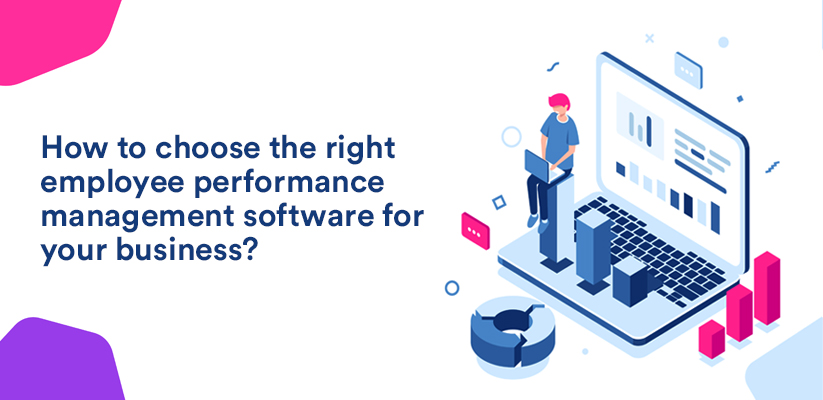Choosing the right business management software can transform your operations. It helps in streamlining tasks, improving efficiency, and boosting productivity.
But how do you make the right choice? Finding the perfect business management software can feel overwhelming. With so many options, each offering different features, it’s tough to decide. You need something that fits your needs and budget. This guide will help you make an informed decision.
We’ll explore key factors to consider, such as ease of use, integration capabilities, and support services. By the end, you’ll know what to look for and how to select the best software for your business. Ready to make a smart choice? Let’s get started!
Importance Of Business Management Software
Choosing the right business management software is crucial. It can transform how your business operates. Good software simplifies tasks and boosts productivity. It also provides valuable insights. This can lead to better decision-making and overall growth.
Boosting Efficiency
Business management software automates repetitive tasks. This saves time and reduces errors. Employees can focus on more important work. It helps in streamlining processes. Clear workflows lead to better organization. This results in faster task completion. Effective software enhances team collaboration. It improves communication within the team.
Improving Decision Making
Good software collects and analyzes data. This helps in making informed decisions. You get real-time insights into your business. It shows trends and patterns. Decision makers can act on accurate information. This reduces the risk of bad decisions. With clear data, planning becomes easier. It helps in setting realistic goals. You can track progress and adjust strategies. This ensures continuous improvement.
Identifying Business Needs
Choosing the right business management software starts with identifying business needs. This step ensures the software aligns with your company’s goals and processes. It helps you understand what features are necessary for your operations. Below, we will explore how to evaluate current processes and define key requirements.
Evaluating Current Processes
Start by looking at your existing workflows. Identify areas that need improvement. Are there tasks that take too much time? Are there processes that are prone to errors? Make a list of these pain points. Understanding these issues helps you see what you need in a new system.
Involve your team in this evaluation. They can provide insights into the daily challenges they face. Gather feedback from different departments. This ensures the software meets the needs of all users.
| Current Process | Challenges | Improvement Needed |
|---|---|---|
| Inventory Management | Manual tracking, errors | Automate inventory updates |
| Customer Support | Slow response times | Faster ticket resolution |
| Financial Reporting | Complex, time-consuming | Simplify report generation |
Defining Key Requirements
After evaluating current processes, define the key requirements for the new software. These requirements should address the challenges identified earlier. List the features that are essential for your business. This list will guide you in selecting the right software.
Consider these factors when defining requirements:
- Scalability: Can the software grow with your business?
- Usability: Is it easy for your team to use?
- Integration: Does it integrate with your existing tools?
- Support: What kind of customer support does the vendor offer?
- Cost: Is it within your budget?
Creating a detailed list of requirements helps you narrow down your options. It ensures you select software that meets your specific needs and improves your business operations.
Budget Considerations
Choosing the right business management software can be challenging. Budget considerations play a major role in this decision. It’s essential to balance cost with benefits. Let’s break down the budget aspects into two main categories: Initial Costs and Long-Term Investment.
Initial Costs
Initial costs are the upfront expenses for the software. These may include:
- License fees: Some software requires a one-time payment for a license.
- Setup fees: Costs for installing and configuring the software.
- Training costs: Expenses for teaching employees how to use the software.
It’s crucial to list all initial costs before making a decision. Use the table below to compare initial costs for different software options:
| Software | License Fee | Setup Fee | Training Costs |
|---|---|---|---|
| Software A | $500 | $200 | $300 |
| Software B | $700 | $100 | $250 |
| Software C | $600 | $150 | $280 |
Long-term Investment
Long-term investment includes ongoing costs. These costs ensure the software continues to meet your business needs. Consider the following:
- Subscription fees: Monthly or yearly payments for using the software.
- Maintenance fees: Costs for regular updates and technical support.
- Upgrade fees: Expenses for new features or improved versions.
Choosing software with lower initial costs might seem attractive. But it’s important to consider the long-term investment too. Sometimes, higher initial costs lead to lower ongoing expenses. Use the list below to evaluate long-term investments:
- Calculate the total cost of ownership over five years.
- Compare subscription fees with alternative software.
- Assess the quality of customer support.
Balancing initial costs with long-term investments helps to choose the right software. This ensures your business remains efficient and cost-effective in the long run.
Software Features To Look For
Choosing the right business management software is crucial. It can streamline operations, improve productivity, and save time. But how do you know which software is the best fit? Focus on key features that match your business needs.
User-friendly Interface
A user-friendly interface is essential. It allows your team to navigate the software easily. Look for software with a clean layout and clear instructions. Intuitive design minimizes the learning curve. This means less training time and faster adoption by your team.
Scalability Options
Scalability options are vital for growing businesses. Choose software that can grow with your company. It should handle increasing data and user numbers. Look for features like customizable modules and flexible storage. This ensures the software remains useful as your business expands.
Integration Capabilities
Integration capabilities play a crucial role in choosing business management software. Proper integration ensures smooth operations and enhances productivity. It allows different software tools to communicate and work together effectively. Let’s explore some key aspects to consider.
Compatibility With Existing Tools
The software you choose must work well with your current tools. Compatibility avoids disruptions and ensures seamless workflows. Check if the software supports popular tools like CRM, accounting, and email systems. This step will save time and reduce the learning curve for your team.
Data Migration
Data migration is another important factor. Migrating data to a new system can be challenging. Choose software that offers easy data migration options. Look for software with built-in migration tools. These tools help transfer data without losing important information.
Also, ensure the software provides support during the migration process. This support can be in the form of tutorials, customer service, or detailed guides. Proper data migration ensures all your information remains intact and accessible.

Credit: www.synergita.com
Vendor Reputation
Choosing the right business management software involves many factors. One crucial aspect is the vendor’s reputation. A reputable vendor ensures reliability and trust. It means you can depend on their software and services.
Customer Reviews
Customer reviews are a goldmine of information. They provide insights into real user experiences. Reading reviews helps you understand the software’s strengths and weaknesses. Look for consistent positive feedback. It indicates a trustworthy vendor. Negative reviews, on the other hand, highlight potential issues. Pay attention to patterns in the feedback. This can help you make an informed decision.
Support Services
Support services are vital for business management software. Good support ensures you can resolve issues quickly. Check if the vendor offers 24/7 support. This is important for businesses operating at all hours. Consider the types of support available. Phone, email, and chat support are common options. Also, look for additional resources like FAQs and tutorials. These can help you troubleshoot problems on your own.
Security Measures
Choosing the right business management software involves many considerations. One of the most critical is security measures. Protecting your data and ensuring compliance with regulations is vital. Let’s dive into the key aspects of security measures.
Data Protection
Effective data protection safeguards your business information from unauthorized access. Here are some essential elements to consider:
- Encryption: Ensure the software uses strong encryption methods for data storage and transfer.
- Access Control: Implement role-based access to limit data access to authorized users.
- Regular Backups: Check if the software performs regular data backups to prevent data loss.
Compliance With Regulations
Ensuring the software complies with relevant regulations is crucial. Non-compliance can lead to legal issues and fines. Focus on the following:
| Regulation | Key Requirement |
|---|---|
| GDPR | Data protection and privacy in the EU |
| HIPAA | Protection of health information |
| SOC 2 | Security, availability, processing integrity, confidentiality, and privacy |
Verify that the software provider adheres to these regulations. This ensures your business remains compliant and avoids potential penalties.

Credit: www.decisivedge.com
Trial And Evaluation
Choosing the right business management software is a critical decision. Trial and evaluation are essential steps in this process. They allow you to test the software’s functionality and compatibility with your business needs. This helps you make an informed decision.
Free Trials
Many software vendors offer free trials. This is a great way to test the software. You can explore its features and interface without any financial commitment. Make sure to use the trial period effectively. Try out the key features that are most relevant to your business. Note any limitations or issues. This will help you understand if the software meets your needs.
Pilot Testing
Pilot testing is another valuable strategy. It involves using the software on a small scale before full implementation. This helps identify any potential problems. You can gather feedback from employees who use the software. This feedback is crucial for understanding real-world performance. It also helps in making necessary adjustments. Pilot testing minimizes risks and ensures smoother integration.
Making The Final Decision
Choosing the right business management software is a significant decision. It impacts your team’s efficiency and overall business growth. You’ve researched, tested, and compared various options. Now, it’s time to make the final decision. This step is crucial and involves gathering feedback and consulting with experts.
Gathering Team Feedback
Gather input from your team members. They will use the software daily. Ask them about their experience with the software. Did they find it user-friendly? Did it meet their needs? Their insights are valuable. They can highlight potential issues or benefits. This feedback ensures the software works for everyone.
Consulting With Experts
Consult industry experts for their opinions. They have experience with different software. They can provide insights and recommendations. Experts can identify features that are essential for your business. They can also help you avoid common pitfalls. Their advice can guide you to the best choice.

Credit: navan.com
Frequently Asked Questions
What Is Business Management Software?
Business management software is a suite of tools designed to streamline business processes. It helps manage tasks, projects, and resources. It improves efficiency and productivity.
Why Is Business Management Software Important?
Business management software is important because it enhances operational efficiency. It helps in organizing tasks, managing resources, and improving collaboration. It also provides valuable insights through data analysis.
How To Choose The Right Software?
To choose the right software, identify your business needs. Evaluate different options based on features, scalability, and cost. Read user reviews and compare functionalities.
What Features To Look For In Business Management Software?
Look for features like task management, resource allocation, and project tracking. Ensure it offers reporting, collaboration tools, and integration capabilities. User-friendly interface is a plus.
Conclusion
Choosing the right business management software is crucial. It can simplify tasks. Increase efficiency. Save time. Assess your business needs first. Research options carefully. Compare features and prices. Seek feedback from other users. Ensure the software is user-friendly. Consider future growth.
Make an informed decision. The right software supports your business goals. Boost productivity. Enhance management. Start evaluating your options today. Make the best choice for your business success.




